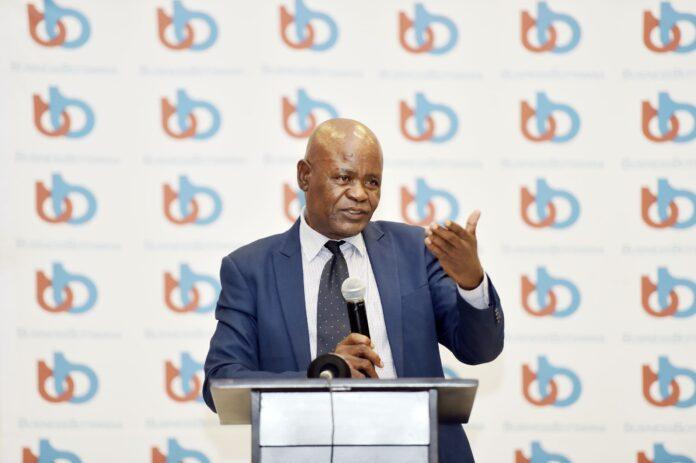30th January 2025
Own Correspondent
The Minister of Labour and Home Affairs Pius Mokgware said there is no reason that companies earning profits in excess of P500million annually could not pay a minimum wage of P4,000 monthly.
He however indicated a willingness to listen to the views of the business community, urging them to give him a reasonable proposal that addressed the concerns of all stakeholders.
“That is why I am here,” said Mokgware.
This follows a 4 week survey of 2,000 local SMME’s by Business Botswana, to gauge industry views, perceptions and perspectives on the P4,000 minimum wage proposal.
The minimum wage is the lowest legal pay a worker can receive for their labour, while the living wage is calculated to ensure that workers can meet their basic needs, including food, housing, and transportation, for themselves and their families. Understanding this distinction is key to ensuring that our wage policies are not only fair but sustainable for businesses.
Norman Moleele, Business Botswana, Chief Executive Officer(CEO), said “The New Government proposed on implementing the P4000 minimum wage through its continuous pronouncements. This is a matter of serious concern for the private sector in that it is not only against established procedures but its likely implications on workers, employers, and the economy, generally.”
He said, “Unsurprisingly, this has already sent the private sector into panic and shockwave and this is likely to be further exacerbated going forward. We believe this requires a decisive response and a social dialogue among the private sector to ensure it is implemented optimally and meets the needs of both workers and employers while aligning with international labour standards.”
Molefe stressed the need to explore recommendations for potential adjustments to the minimum wage that balance fair compensation with the economic realities of businesses. Engaging with all of you will be critical in providing practical solutions.
Most (71.4%) of respondents of the 2,000 surveyed by Business Botswana reported being aware of the proposed P4000 minimum wage. However, opinions/views largely divided/mixed on the acceptability. 31.5% support the increment, with 16.9% expressing strong support.
In contrast, 44.3% oppose it, with 22.4% expressing strong opposition.
About two-thirds 62.7% of respondents reported being unprepared, compared to only 14% who felt fully prepared. Key Issues with implementation of minimum wage included rising operational costs: 28.5% of businesses would likely raise prices to cope with higher wages – 66% reported a lack of financial resources.
Job reductions: most (35.1%) respondents reported as the most important to consider anticipating layoffs to manage costs. 64.4% of respondents anticipate a reduction in workforce levels due to financial constraints and 10% would turn to automation to reduce reliance on labour.
5.5% of businesses indicated reducing employee benefits to cope with rising wage bill.
4.4% are considering cutting employee hours to manage budgets. These findings underscore the private sector’s financial vulnerability to the proposed minimum wage increment.
Neo Nwako, Business Botswana President, said “It is also of critical importance to note that the much talked about P4000 minimum wage also presents its challenges, particularly for businesses, especially those in labour-intensive industries.”
He said, “Businesses are tasked with navigating the increased cost of 4 labour while also striving to remain competitive in an increasingly complex global marketplace.”
Nwako stressed the importance of being sensitive to the idiosyncracies of the diversity of industries in Botswana. What works for one sector may not be suitable for another, and we must adopt a nuanced approach.
“It’s also important that we continue to engage in constructive dialogue with all stakeholders to ensure that policies are fair, sustainable, and in the best interest of both workers and employers,” said Nwako.









